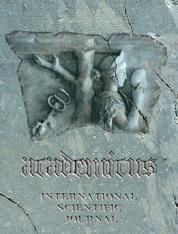The reflective philosophy of European integration - European identity and the transition of post-communist societies. The case of Albania.
The reflective philosophy of European integration - European identity and the transition of post-communist societies. The case of Albania.
Author(s): Agim LekaSubject(s): Psychology
Published by: Academicus
Summary/Abstract: Research so far in the field of political philosophy and moral philosophy and experience dealing with Albanian post communist transition period, leading to the potential of these theses to be argued.European integration as an objective process size world as and globalization are two parallels, which are moving in time of crisis of philosophical though. The end of the Cold War, the decline of the Berlin Wall, in 10-year-old the last century, Islamic fundamentalism, especially after the events of 9 September 2001 in America, are the objective processes that have led the world toward a new order. Even in the second decade of the XXI century, this development is not only objective but also irresistible advance and the most faster. In this time are present many subjective phenomena, like multiculturalism and Christianity xenophobia. These are only some of the objective and subjective circumstances that determined a new philosophical though. Aristotelian philosophy was transformed into a postmodernism and is serving as a strong basis for a new philosophy. Postmodernism more and more will emerge us as a modern Aristotle’s. Aristotle’s philosophical thought can communicate quite well with Kantian universalism and transcendence Kantian right path of truth and not even stop to existentialism or to analytic philosophy. The process of European integration proves that philosophy is already exceeded critical and critical and philosophical thought that post have paved the way critical of a new thought, reflective. We think that it opened the way towards a new philosophy: reflective philosophy. This philosophy will be the product of integration of all philosophical thought from antiquity: from ancient Greek philosophy, to medieval Aristotle or Thomism philosophy, to the modern philosophy down to us, the post modern philosophy. The new philosophy is reflective will try to interpret the old truth, or historical truth not by a wide critical to the antagonist, but in a competitive value and competitive alternatives. In reflective philosophy appreciates and prevailed the product (outcome) and not only the process. So the truth according to this philosophy will be the integrated truth. Dialectic of philosophical idea in this philosophy, is not a critical dialectic as a result of facing the negative dialectic to that positive. But it is a process that evaluated the validity of product development.
Journal: Academicus International Scientific Journal
- Issue Year: II/2011
- Issue No: 03
- Page Range: 075-095
- Page Count: 21
- Language: English

